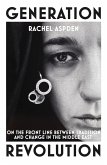The wave of popular uprisings that swept across the Arab world starting in December 2010 rattled regimes from Morocco to Oman. However, Lebanon's sectarian system proved immune to the domestic and regional pressures unleashed by the Arab Spring. How can this be explained? How has the country's political elite dealt with challenges to the system? And, finally, what lessons can other Arab states draw from Lebanon's sectarian experience?
This book looks at the mix of institutional, clientelist, and discursive practices that sustain the sectarian nature of Lebanon. It exposes snapshots of an ever-expanding sectarian web that occupies substantial areas of everyday life and surveys struggles waged by opponents of the system - by women, teachers, public sector employees, students or coalitions across NGOs - and how their efforts are often sabotaged or contained by numerous systematic forces.
This book looks at the mix of institutional, clientelist, and discursive practices that sustain the sectarian nature of Lebanon. It exposes snapshots of an ever-expanding sectarian web that occupies substantial areas of everyday life and surveys struggles waged by opponents of the system - by women, teachers, public sector employees, students or coalitions across NGOs - and how their efforts are often sabotaged or contained by numerous systematic forces.
Dieser Download kann aus rechtlichen Gründen nur mit Rechnungsadresse in A, D ausgeliefert werden.









